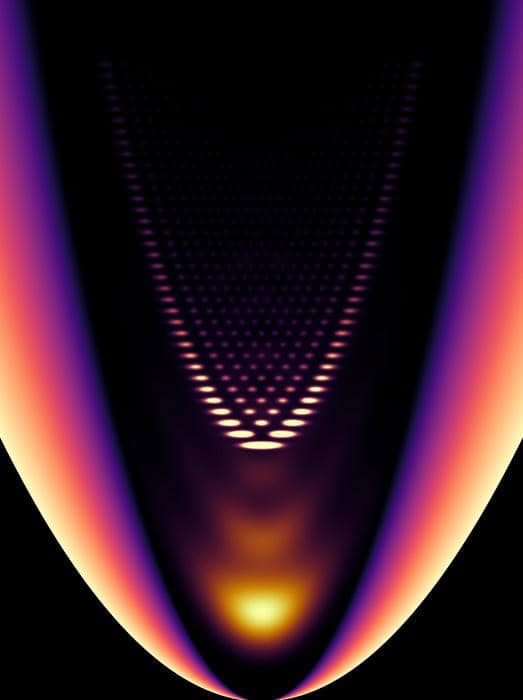Decreasing the number of dimensions from three to two to one dramatically influences the physical behaviour of a system, causing different states of matter to emerge. In recent years, physicists have been using optical quantum gases to study this phenomenon.
In the new study, conducted in the framework of the collaborative research centre OSCAR, a team led by Frank Vewinger of the Institute of Applied Physics (IAP) at the University of Bonn looked at how the behaviour of a photon gas changed as it went from being 2D to 1D. The researchers prepared the 2D gas in an optical microcavity, which is a structure in which light is reflected back and forth between two mirrors. The cavity was filled with dye molecules. As the photons repeatedly interact with the dye, they cool down and the gas eventually condenses into an extended quantum state called a Bose–Einstein condensate.
